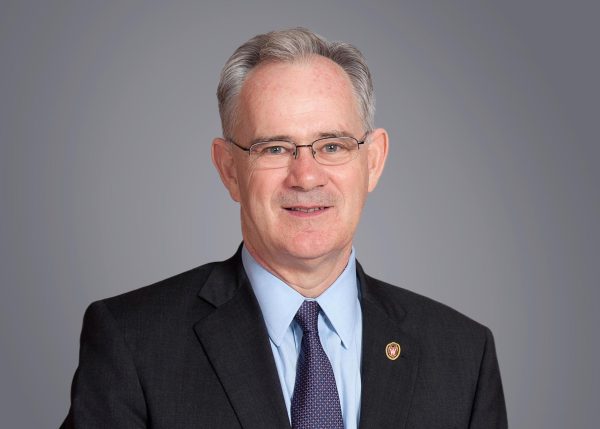The University of Wisconsin announced April 9 the approval of a new paid parental leave policy for university employees, according to a university newsletter. Unions and ad-hoc groups have been working on approving a paid parental leave plan for nearly three decades, according to The Cap Times.
UW employees are entitled to a maximum of six weeks of paid parental leave every 12 months, according to UW’s paid parental leave policy. Eligible employees who experience more than one birth or adoptive event in 12 months, are still entitled to one six-week period of paid leave, according to UW’s paid parental leave policy.
Eligible employees include faculty, academic staff, university staff, limited appointees, specific graduate assistant roles and post-degree research interns, according to the leave policy. Temporary employees and student hourly employees do not qualify, according to the leave policy.
Wisconsin University Union President and UW professor Karl Broman has advocated for paid parental leave since United Faculty and Academic Staff — an organization Broman was formerly part of — created a working group in 2022.
“[The working group] started out trying to understand what peer institutions have regarding family leave and what would need to happen at UW–Madison to push for paid family leave as a benefit during that process,” Broman said.
During the UFAS working groups’ research into the policy, the group learned of an official ad-hoc committee started by former Provost Sarah Mangelsdorf in 2016, Broman said.
The ad-hoc group preceded the Compensation and Economic Benefits Committee, which was instructed to make recommendations for employee compensation and benefits in 2013.
CEBC reported to the University Committee in 2015 where the Faculty Senate decided recommendations were necessary, according to the 2022 report. Mangelsdorf then charged a working group to form cost-neutral approaches to a family leave policy, according to the 2022 report.
UW Department of Forest and Wildlife Ecology professor Adena Rissman was part of the ad-hoc group on paid parental leave, and said receiving recognition from Mangelsdorf helped the movement for paid parental leave catch on.
“Because we had an official charge, the effort had a lot more legitimacy on the campus,” Rissman said. “It led administration to say, ‘Okay, this is an official thing and we’re going to dedicate people’s time and expertise to it.’”
The ad-hoc working group was composed of post-doctoral students, graduate students, faculty, staff and an undergraduate student, Rissman said. The various perspectives and backgrounds ultimately made the group successful, Rissman said.
To advocate for the paid leave policy, the group focused on advancing UW’s mission while supporting its employees, Rissman said.
Recommendations by the ad-hoc group to the university administration included implementing a six-week paid parental leave policy, establishing a timeline to increase paid leave to eight and then 12 weeks and piloting a paid caregiving leave benefit.
The ad-hoc group established these recommendations on the basis that paid leave increases physical and mental health and reduces disparities in workers, according to the report.
Further, a paid leave policy would increase recruitment competitiveness and foster a more diverse workforce by supporting career flexibility, according to the report. Women receive about half of the doctoral degrees in the United States, but fewer women hold tenure-track positions, according to the report.
The report took longer than anticipated because the collaborators were balancing their regular careers alongside completing it, Rissman said. Still, though, the 2022 report was successful and effectively showcased the collective effort of the group, Rissman said.
“It’s really an honor for me to feel that we’ve helped to make this change and to be part of that change that will hopefully benefit so many,” Rissman said.
Despite the approval of the paid leave policy, faculty and graduate student unions are continuing to work on policies that will improve the UW workplace environment.
For example, six weeks of paid leave may not provide parents, especially new mothers, adequate time to recover, according to previous reporting by The Badger Herald. Unions advocating for paid leave propose an additional policy that would include 12 weeks of paid parental leave for new parents, UFAS Organizing Committee chairperson Robert Hawkins said.
The paid leave plan approved by the administration costs less money than other plans anticipated, according to The Badger Herald. Unions remain hopeful the chancellor will approve further expansions to the paid leave program, including paid family and sick leave, Hawkins said.
“One of the top priorities is to have a more comprehensive definition of family leave as opposed to a narrow definition of parental leave, which is excluding a lot of people that maybe don’t want to have children but have a lot of family care obligations that they may need to take leave to attend to,” Hawkins said.
UW employees have also brought up the idea of including paid leave for families with children under six who are not yet in school, Rissman said.
Ultimately, the paid leave program has opened the door to more conversations and research on the importance of paid leave to foster a culture of care, Rissman said. But, there is still work that needs to be done at the administrative level to support faculty, staff and graduate students, Rissman said.
“It’s a big step forward, it’s a big milestone for UW–Madison and I think, hopefully, starts the conversation about what a real comprehensive family and medical leave policy would look like,” Hawkins said.
















